Outlook explores variables that shape and influence individuals relationships with nature and how they seek to inspire, adapt and reimagine what conservation can look like moving forward in a world where Climate Change is affecting a broad range of human and natural systems.
Author: Daphne James, SMCC Summer Associate. A rising senior at Bates collage studying Environmental Studies with a concentration in human culture, gender and the environment.
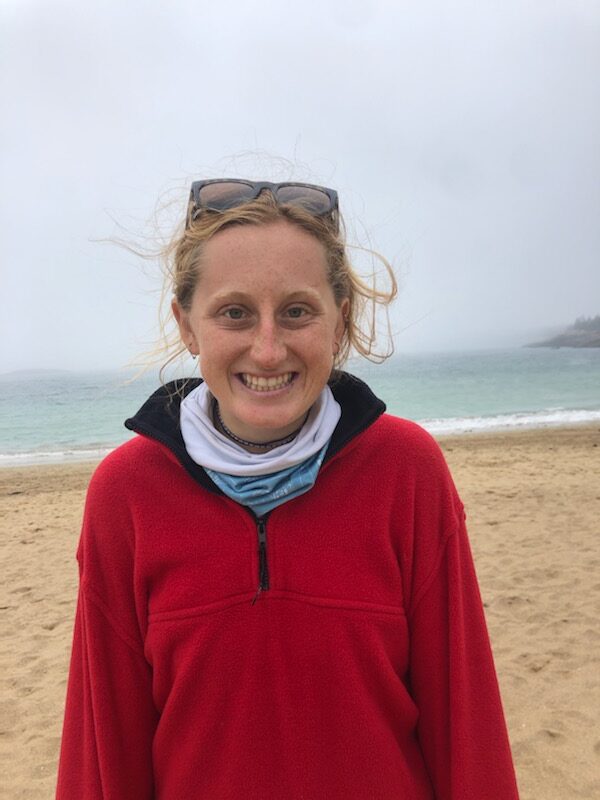
OUTLOOK: A “WALK & TALK” with Stephanie Smith of Friends of Scarborough Marsh
I had the opportunity to meet up with Stephanie Smith, Board Vice President of the Friends of Scarborough Marsh (FOSM) to talk about FOSM’s Climate Change Observatory (CCO) sites and other projects they are involved in. Stephanie has been working with FOSM for 16+ years. FOSM is an all-volunteer organization dedicated to the protection, restoration, and enhancement of the Scarborough Marsh through conservation, research, and education.
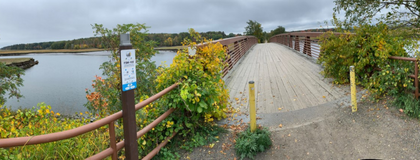
FOSM is part of the Climate Change Observatory Network (CCON). This summer they built out two CCO sites located on the Eastern Trail in Scarborough that are crowdsourcing photos to create time lapse videos that monitor and document both the western view and eastern view of the ever changing Scarborough Marsh.
Stephanie grew up in South Portland and has witnessed first hand all the various changes occurring to the marsh over the years. She expressed how protecting and caring for the marsh has become increasingly more important to many people in light of climate change and the pandemic. Listening to Stephanie talk about the Scarborough Marsh and FOSM’s work, it is was clear that FOSM’s dedication to providing educational opportunities and stewarding the marsh has contributed to making positive impacts for the community.
I was struck by the beauty and serenity of the Scarborough Marsh on my first visit to this area with Stephanie, as we walked north on the Eastern Trail from Pine Point Road to the bridge where the two CCO sites Scarborough Marsh-Western View and Scarborough Marsh-Eastern View are located for passerby to help contribute to monitoring the marsh. I learned about the many ways the Marsh enriches the community and surrounding ecosystem, and why it matters that investing time and resources to protecting it makes a difference. Peter Slovinski’s, FOSM Board Member and Marine Geologist from Maine Geological Survey, INFORMATIVE TALK ( click to watch) with Casco Baykeeper Ivy Frignoca, illuminates the latest science on rising seas, and how we can work together to make our coastline and waters resilient to climate change.
Stephanie has worked on several projects with FOSM, including the signs around the town of Scarborough advocating for protecting the marsh. Another new project that she is excited about is called, Marsh Tapping, where local residents are encouraged to stop using pesticides in their gardens to protect the marsh, and encourage other’s to do the same by posting a sign in their yard. Stephanie shared how she really believes in citizens coming together to help protect their local environment. We talked about how the environment is all interconnected — and the importance of being mindful about our own impacts. Caring for and protecting the Scarborough Marsh is a community effort. As individuals it is important to recognize we are part of a larger whole and can choose to contribute in meaningful and positive ways to build stronger more climate resilient communities that benefit and serve this greater whole.

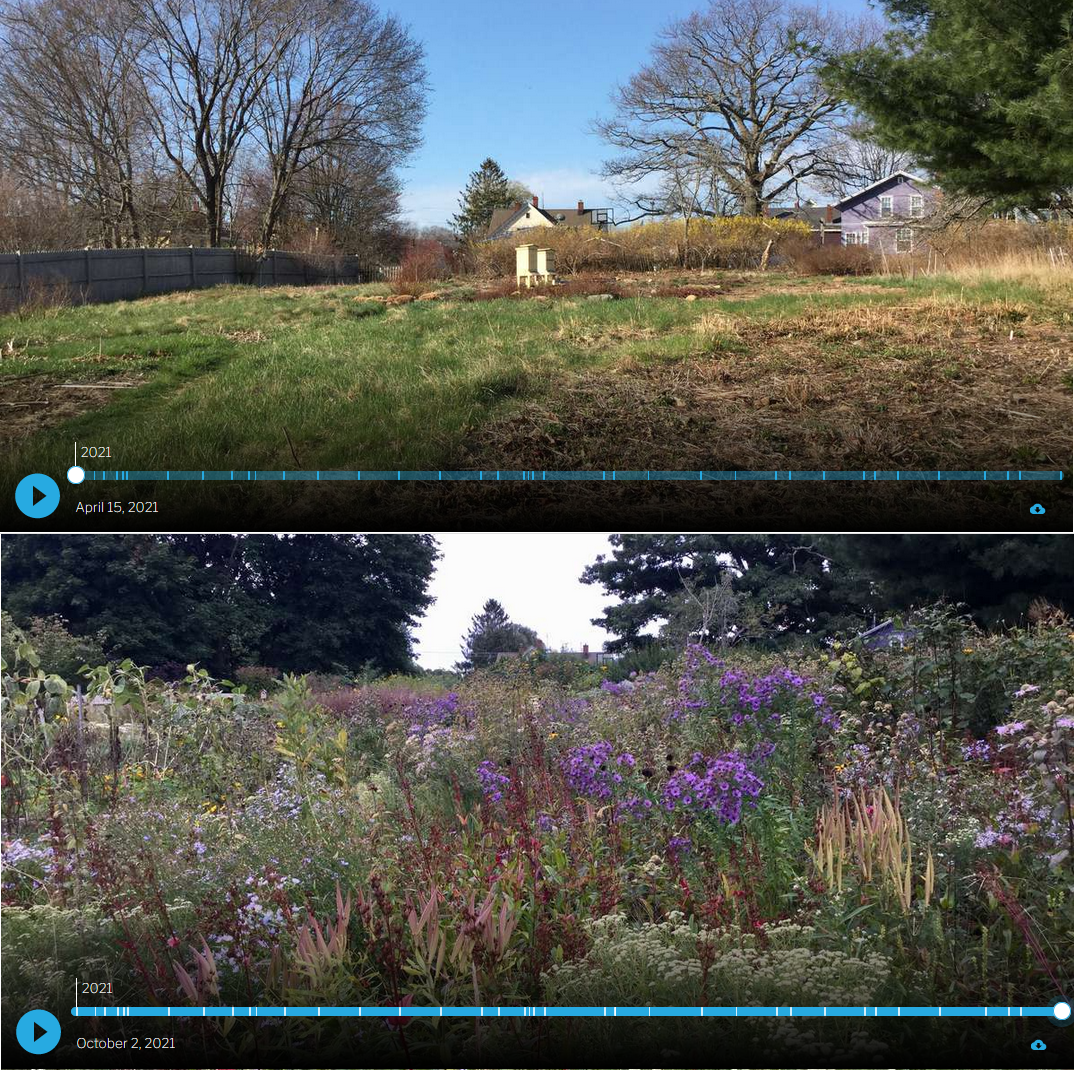

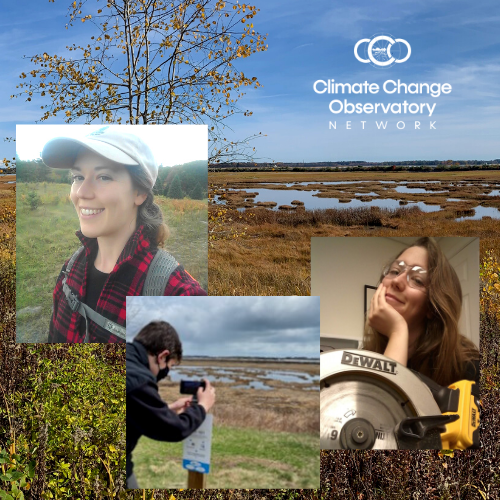 Recently, I had the opportunity to speak with
Recently, I had the opportunity to speak with 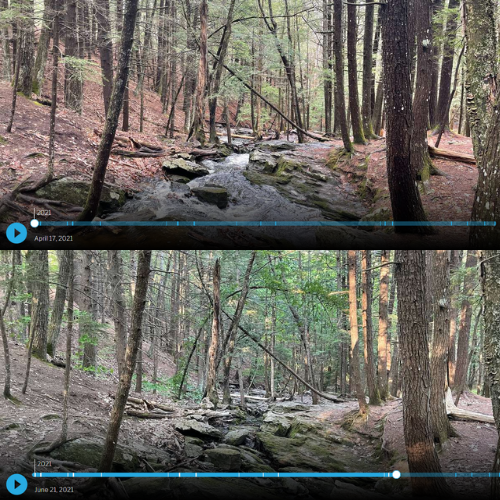 Sami engages with both sites frequently and believes they can help document climate change trends over time. She visited
Sami engages with both sites frequently and believes they can help document climate change trends over time. She visited